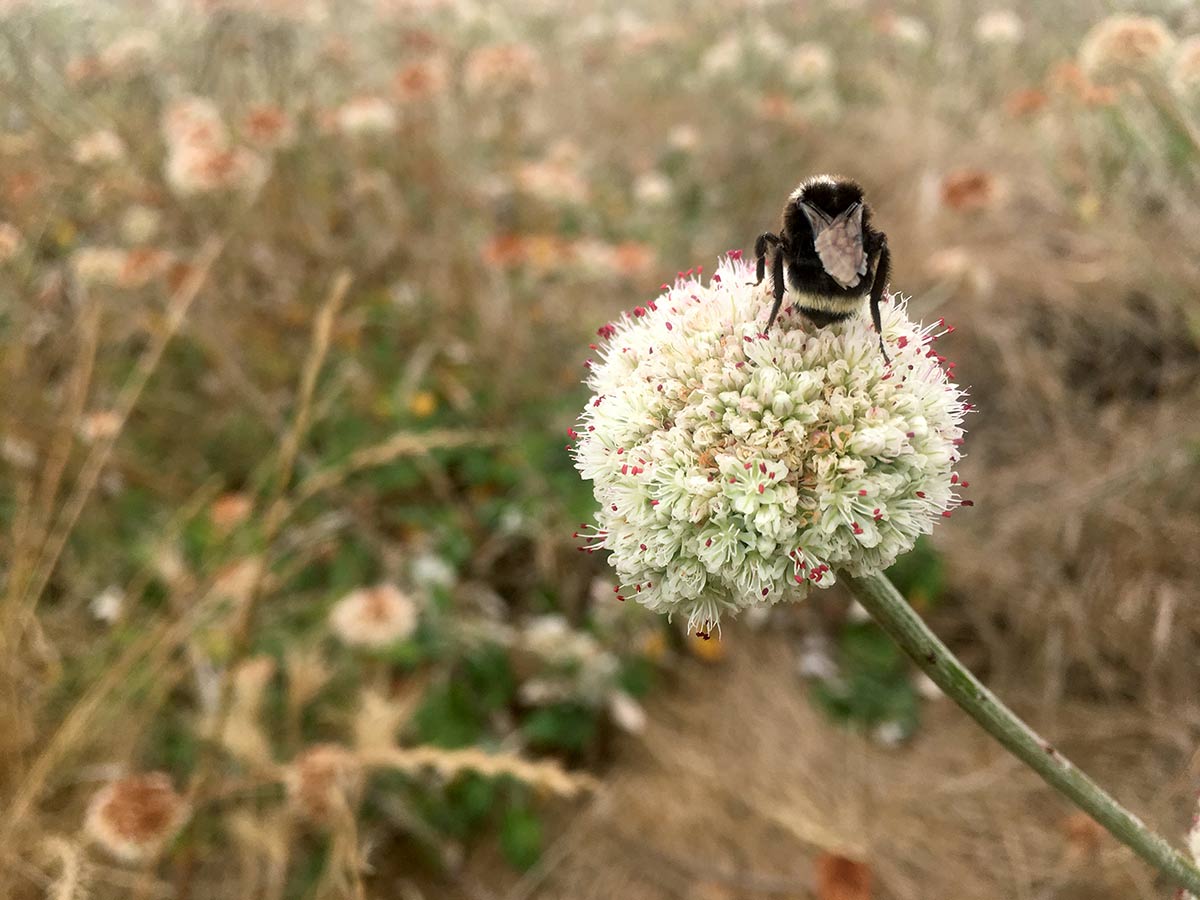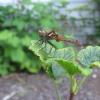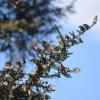David Kollen of Brookings, Oregon has been a steadfast Xerces member for over 20 years. A retired tech executive with a degree in physics, Dave is dedicated to digging deep into the world of invertebrates. Since 2019, Dave has been involved in volunteering as a community scientist for Xerces’ Bumble Bee Atlas, where he and other volunteers contribute to research by conducting surveys for bumble bees. Dave most recently became a volunteer Xerces ambassador and now plays a key role in helping introduce new folks to the community science efforts by giving educational presentations. Dave says, “I've become very aware of how much need there is for outreach in our communities. If I can in any way inspire others to help out, that would be gratifying.”
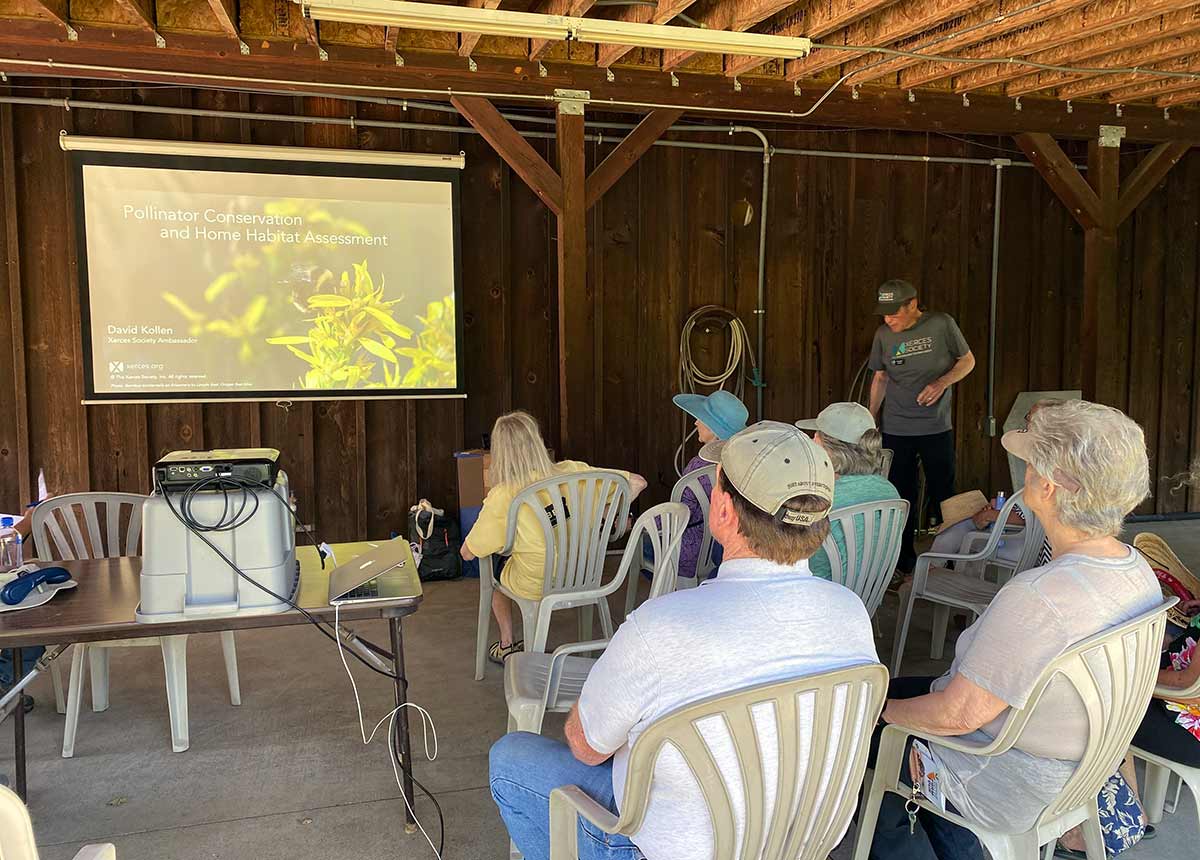
Growing up in the Pacific Northwest, Kollen developed a life-long love of nature and the outdoors. The first invertebrates that caught Dave’s attention growing up were ants. As a kid, Dave remembers being fascinated to care for his ant farm—the kind that displays the colony and all of its activity with see-through sides. Later, as a teen, Kollen remembers reading The World of Ants: A Science-fiction Universe, by Remy Chauvin. Dave recalls, “That was a real epiphany in terms of the absolutely fascinating lives of those insects, and it gave me a deeper appreciation of nature in general.”
Later in life, when Kollen moved to Austin, Texas, he was able to learn about leaf-cutter ants (Atta sp.) in a very personal way. Dave says, “They went about defoliating some of my landscape plants. Nonetheless, I always tried to live in harmony with them.” After graduating from the University of Texas at Austin with a degree in physics, most of Dave’s adult life was spent in Texas, where his environmental interests continued unabated, although studies and his career took up much of his time.
Now that Dave is retired, participation in the Bumble Bee Atlas project is an activity that keeps him busy, as he is involved in both the Pacific Northwest Atlas and most recently the new California Atlas. The Bumble Bee Atlas is a collaborative community science project to track and conserve bumble bees in 15 states across the United States. Working together, Xerces' scientists, state and federal agency biologists, university scientists, and community scientists will be able to rapidly grow our understanding of bumble bees.
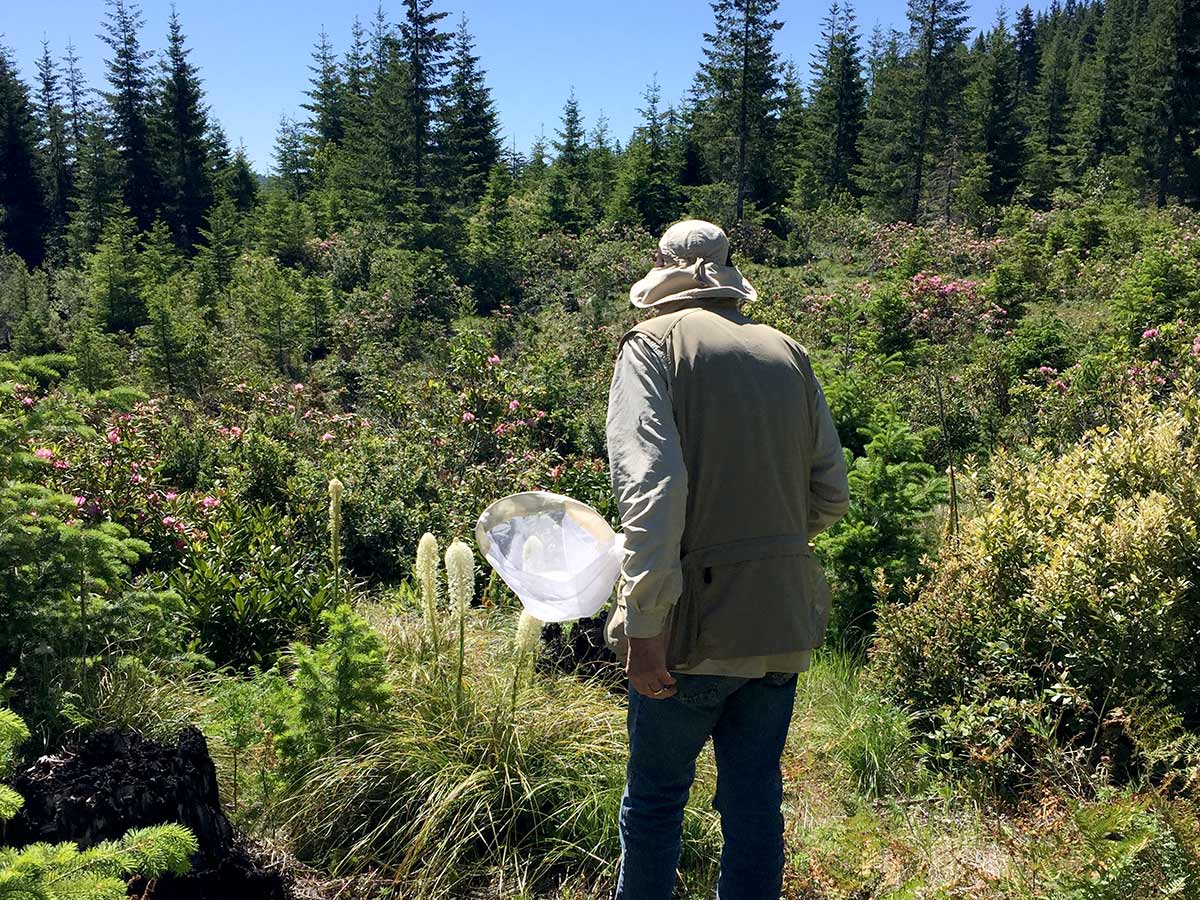
Community scientists, such as Dave, conduct field surveys to help collect data about the distribution of bumble bees. Dave has adopted five grids which means ten obligatory surveys each season, from April through September. Describing his survey grids, Dave says, “It is much different than the mountain meadows you might think about. This is a serpentine-dominated landscape with a large number of endemic plants found nowhere else on earth.” A serpentine fen is a rare type of forested wetland with soils influenced by serpentinite and other rocks, featuring unique plants like the California pitcher plant (Darlingtonia californica). Dave adds, “This work is also very rewarding. You are making contributions as a community scientist, and also learning more about these wonderful creatures and their natural history.” Xerces staff appreciate Dave’s contributions. Leif Richardson, a Xerces conservation biologist with the California Bumble Bee Atlas said about Dave, “He thinks deeply about bumble bees and is a real asset to our Atlas projects!”
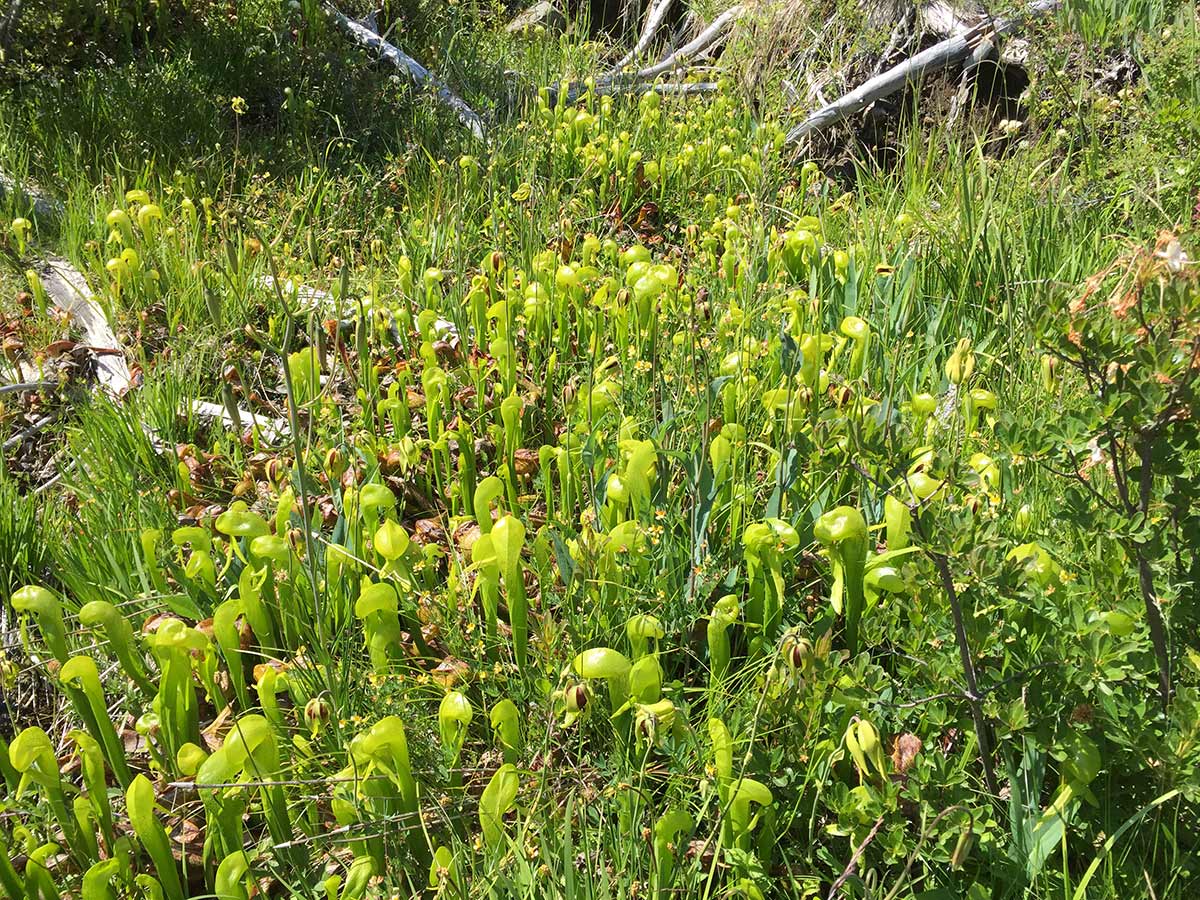
In addition to all Kollen does with the Bumble Bee Atlas and as a Xerces ambassador, he is also an avid gardener working to continuously improve the quality of the pollinator habit at his home and replacing areas of the lawn with pollinator-friendly plantings. Dave says, “My favorite garden visitors are the neighborhood crows and of course, bumble bees!” Some of his favorite plants include ceanothus, huckleberry, rosemary and coastal buckwheat. Some of the bumble bees Dave has observed in his garden are the yellow-faced bumble bee (B. vosnesenskii), the black-tailed bumble bee (B. melanogygus), and fuzzy-horned bumble bee (B. mixtus). When asked if he had any tips for creating bumble bee habitat, Dave responded, “This one is easy, just follow the Xerces Society's four main conservation principles.” Those are:
- Grow a variety of bee-friendly flowers that bloom from spring through fall.
- Protect and provide bee nests and caterpillar host plants.
- Avoid using pesticides, especially insecticides.
- Talk to your neighbors about the importance of pollinators and their habitat.
